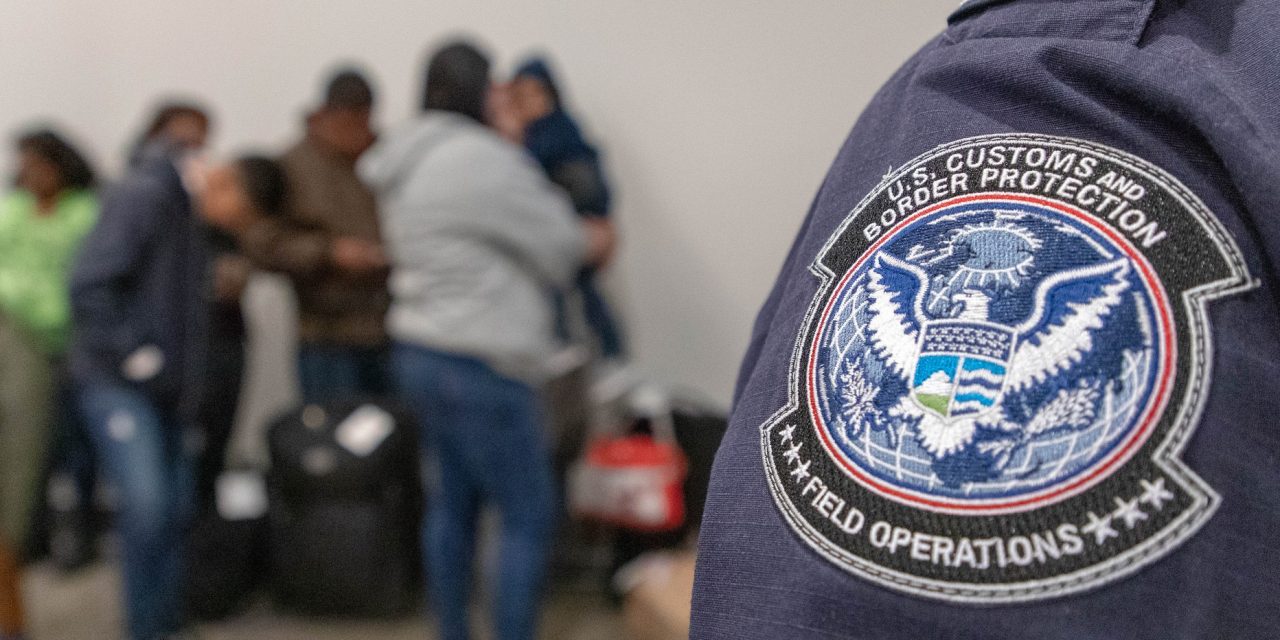As the Trump administration cracked down on migrants at the U.S.-Mexico border, it has often invoked the concept of “national sovereignty” to justify drastic policy changes. But a new Senate report reveals that U.S. Customs and Border Protection (CBP) itself violated the sovereignty of another nation.
Agents deployed to Guatemala in January in partnership with the U.S. Department of State to help create a new Guatemalan border force instead took it upon themselves to round up migrants and deport them to Honduras.
CBP agents were not authorized to conduct immigration enforcement outside of the United States. They had promised the State Department they would not do anything more than training. Then on January 15, while agents in Guatemala were training DIPAFRONT—the country’s new border patrol force—hundreds of Honduran migrants crossed the border into Guatemala.
The report reveals that CBP agents, in violation of its agreements with the State Department, deployed to the border between Guatemala and Honduras. They arrested over 100 Hondurans. Agents then rented local buses, forced the migrants onto the buses, and returned them back to the Honduran border.
At no point did the CBP agents screen any of the migrants, ensure that they were not sending people back to persecution, or check whether they were deporting unaccompanied children.
In recent years, caravans have become a common way for individuals to band together to avoid the dangers of traveling to the United States alone. By traveling in large groups, people seeking asylum don’t have to pay fees to smugglers and can lower the possibility of being kidnapped and extorted by cartels or other organized criminal groups.
Even though caravans can be viewed as an anti-cartel measure, the Trump administration has been particularly harsh on their existence and has worked with local governments to stop them.
The actions of CBP agents last January in Guatemala stem from this harshness.
Agents acted without the permission of the State Department or even the permission of the Guatemalan government.
When the Senate initially asked the State Department about the incident, they were told that the operation did not take place. It seems that CBP even misled State Department officials about the operation. Only after subsequent inquiries did the truth come out.
The State Department was reportedly particularly concerned because CBP officials had exposed the U.S. government to significant legal risk. If people had been injured by CBP officers conducting illegal law enforcement in another sovereign nation, the U.S. government would open itself to serious lawsuits.
After the Senate report was released, the Guatemalan government expressed alarm, indicating it had never been told of the incident. The Guatemalan government now says that it will launch an investigation into the Senate report.
CBP’s actions reveal how much the agency has gone rogue, along with much of the Department of Homeland Security (DHS). Just in 2020 alone, the agency has racked up a laundry list of human rights violations and abuses, including shutting the border to refugee children and raiding humanitarian camps.
Despite concerns about mission creep, CBP continues to work to become a major player in Central American diplomacy. The Trump administration has signed agreements on migration with most countries in the region. These agreements have been pushed by DHS—not the State Department, which has for centuries been America’s diplomatic arm.
The revelation that CBP agents carried out illegal law enforcement operations in Central America makes clear that CBP should step back into its lawful role and let the State Department lead on foreign engagement.
FILED UNDER: Customs and Border Protection, U.S. State Department


